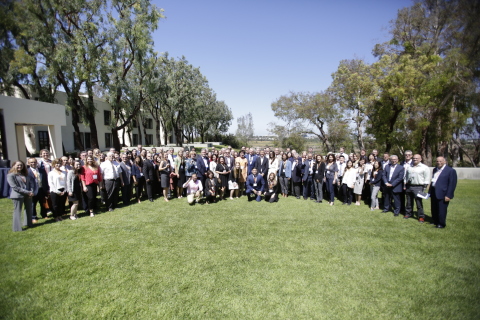On the same day the World Health Organization (WHO) designated World Patient Safety Day, The Patient Safety Movement Foundation’s (PSMF) Midyear Planning Meeting (MYPM) brought together more than a hundred patient safety stakeholders from across seven countries for intimate discussions about how to achieve ZERO preventable deaths in hospitals. More than 200,000 people die due to medical errors in the US each year, and more the 4.8 million worldwide.
During this important meeting, administrators, clinicians, patient safety advocates, family members and other patient safety leaders from across the healthcare ecosystem had an opportunity to share experiences and expertise to help develop solutions to eliminate preventable patient deaths.
The meeting began with a special video message from Dr. Tedros Adhanom Ghebreyesus, Director General of the WHO thanking those who have made a commitment to patient safety and challenging others to make the same commitment to support the WHO in making patient safety a global priority.
“No one should be harmed when seeking healthcare,” said Joe Kiani, PSMF founder. “Even one preventable death is one too many. World Patient Safety Day activates every stakeholder across the healthcare ecosystem to ‘Speak up for patient safety.’ I challenge you to join us and make plans to achieve ZERO.”
During the day, general sessions demonstrated to those in attendance how individuals and organizations have changed policies and processes to eliminate preventable patient deaths.
Breakout sessions focused on solutions for:
Medication Safety/Opioid Safety (APSS #3 and #4) Hand-Off Communications (APSS #6) Neonatal Airway Safety (APSS #7 and #8) Early Detection and Treatment of Sepsis (APSS #9) Systemic Prevention and Resuscitation of In-Hospital Cardiac Arrest (APSS #10) Mother/Baby Falls (APSS #11 and #14) Embolic Events (APSS #12) Person and Family Engagement and Hand Hygiene (APSS #16 and #2) Patient Safety Curriculum (APSS #17) Post-Operative Delirium in Older Adults (APSS #18)
“The numbers of patients that die each year from preventable hospital errors is just not acceptable, and we know how to lower them,” said David Mayer, PSMF CEO. “Our 34 free Actionable Patient Safety Solutions (APSS) provide specific processes and guidance to help hospitals prevent medical harm. We know how to reduce the number of preventable deaths on our way to eliminating them entirely.”
About Patient Safety Movement Foundation
Each year, more than 200,000 people die unnecessarily in U.S. hospitals. Worldwide, 4.8 million lives are similarly lost. The Patient Safety Movement Foundation (PSMF) is a global non-profit that offers free tools to help achieve ZERO preventable deaths from hospital errors. The Patient Safety Movement Foundation was established through the support of the Masimo Foundation for Ethics, Innovation, and Competition in Healthcare to reduce that number of preventable deaths to ZERO. Improving patient safety requires a collaborative effort from all stakeholders, including patients, healthcare providers, medical technology companies, government, employers, and private payers. PSMF’s World Patient Safety, Science & Technology Summit brings together the world’s best minds for thought-provoking discussions and new ideas to challenge the status quo. Our Actionable Patient Safety Solutions (APSS) provide evidence-based processes to help hospitals eliminate errors. Our Open Data Pledge encourages healthcare technology companies to share the data for which their products are purchased. Visit patientsafetymovement.org.

 Stakeholders meet at Patient Safety Movement Foundation Midyear Planning meeting to plan for ZERO preventable deaths in hospitals
Stakeholders meet at Patient Safety Movement Foundation Midyear Planning meeting to plan for ZERO preventable deaths in hospitals










.jpeg)

.jpeg)
.jpeg)
.jpeg)


.jpg)


.jpeg)
.jpeg)


.jpeg)
.jpg)




